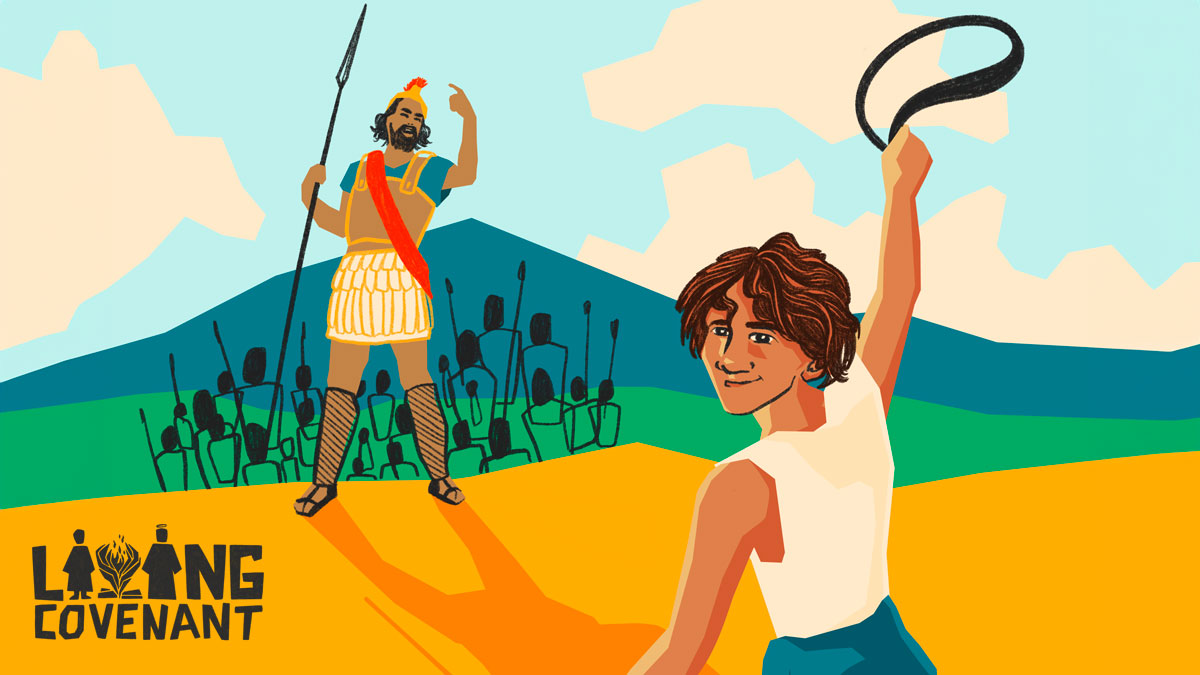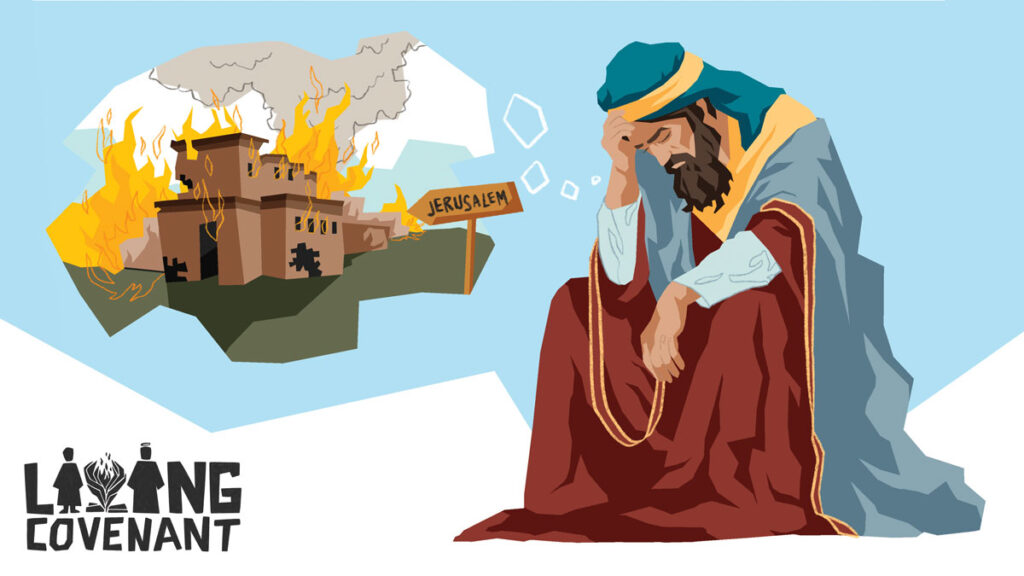I have always related best to the flawed characters found within the pages of my Bible. I wish it weren’t true, but it is. I would prefer to see myself reflected in those who carried their burdens with consistent faith, humility and integrity. But that is not my story, and a life without tension is not something I can relate to easily. I’m well-raised, well-off, well-married, well-educated and well-travelled, but I still wrestle with God daily, yearning to understand His purpose for my life.
For this reason, I relate to the story of David the best—a godly man who was, at many times, anything but godly. Yet, as he matured spiritually, he learned to wrestle less with the devil and worldly temptations, though they never disappeared, and grapple with God more.
In the elaborate tapestry of biblical narratives, few figures like David capture the complexities of human life. His wonderfully turbulent life, marked by triumph and turmoil, reflects profoundly on the transition from youthful indiscretions to mature faith. A living, breathing, flexing, crying, painful, comforting, tearing, healing faith. It is a faith journey that captures the spectrum of emotions and feelings that most people feel as they wrestle for God and with God. In my frequent discussions with young people who are considering running to or from, or accusing God, I find no narrative of better relevance to the struggles they are facing than the account of King David.
His journey is a universal one. A striving for the deepest desires of the human soul. A longing for the transformative and grounding connection that is only possible with God. If you are not of the ”youthful variety”, there is still much to learn. For you will know someone youthful, in age or attitude, and you are responsible to support their spiritual maturing with empathy, kindness and share your wisdom in their times of need.
David’s early years are emblematic of youthful exuberance combined with wide-eyed naivety and a desire to experience the full spectrum of life’s passions. His early career victory over Goliath showcases his God-given values of courage, bravery and faith. These are values that most people, young and old, desire deeply as they search for meaning and purposeful living. David’s narrative exposes the incredible achievements possible with youthful passion and desire, an energy that often aggravates ”mature Christian folk”. Appointed by God, David restored order and faith throughout Israel. As he expresses his desire to build a temple for God to dwell with His people, God responds by making a covenant with David and promising that from his royal lineage, a descendant would rise to an everlasting throne and kingdom (2 Samuel 7).
In our Christian journeys, most of us have felt these moments, too. Moments where we would give, do or say anything for God. We would serve in the poorest countries, preach on the streets and give generously to the poor. But any mature soul knows that moments of faith, character and integrity do not always deliver us from moments of vulnerability, weakness and temptation. While incredibly successful, David was also fatally flawed. He arranged for the cowardly murder of Uriah (2 Samuel 11:15), slept with Bathsheba (2 Samuel 11:27), conducted a census against God’s command (2 Samuel 24:1-17) and failed as a parent on multiple occasions, leading to the death of his children on multiple occasions (2 Samuel 12:18, 2 Samuel 18).
I see myself in David’s shoes in each of his stories. I’m not the third person. I wouldn’t have made the right choice either. I would have made his choice. If you believe you would act differently, close your eyes and imagine you are the President of the United States. You were formerly the world champion middle-weight boxer, and you toured as the lead singer of U2 for a decade. You are incredibly wealthy, exceedingly attractive and extremely powerful. All of these impact your decisions, for God or against His will.
And these moments are exactly where most people relate with David the most. Not to King David, but to David, a man, a father, a fatally flawed human fighting with his own flesh (Psalm 37:4). Ordained for God-fearing greatness but lacking the spiritual discipline to live out an appointed existence. Battling moments of great tension where we fall apart over life’s complexities, our moral failings and inabilities, through moments of heartbreak and pain and indescribable feelings of loneliness and isolation. The beautiful truth in all of this is that with our doubts and fears, sinful moments, hateful speech, ignorance and arrogance, we are still loved more than we could ever imagine. By a God who is faithful through generations, slow to anger, steadfast and unchanging, abundant in love, wise and merciful (Psalm 145:8,9). He displays a deep, unshakable love for you—a constant, formidable, personal pursuit towards your brokenness.
In his memoir, Nikos Kazantzakis shares this story: As a young man, he spent a summer in a monastery during which he had a series of conversations with an old monk. One day, he asked the old monk, ”Father, do you still do battle with the devil?” The old monk replied, ”No, I used to, when I was younger, but now I have grown old and tired, and the devil has grown old and tired with me. I leave him alone, and he leaves me alone.” ”So, your life is easy then?” remarked Kazantzakis. ”Oh no,” replied the monk, ”it’s much worse. Now I wrestle with God!”
When I explore the story of David, I see his youthful years marked by a dramatic battle with the devil. Dealing with passion, sexuality, fame and the desire for fortune. Things we can all relate to. But God is faithful to David and keeps His covenant. As David matures, he is never perfect, rarely right and still frustrated, but he begins to wrestle with God rather than the devil. I encourage you to re-read the Psalms and acknowledge David’s honesty. He consistently demonstrates three practical ways to wrestle with God truthfully:
- Acknowledging and confessing our sins (Psalm 51:1,2)
- Admitting our desires and longing for a relationship with God (Psalm 84:2)
- Praying for the restoration of our heart and soul (Psalm 51:10)
As a young father and an educator, I want my daughter and all young people to know that the Bible is worth reading, knowing and worthy of application in their lives. Whether we are honest about our sins, like David or not, we all wrestle with worldly desires and sinful living. You are not alone. But remember that God keeps every covenant He declares, and Jesus is coming back again soon for you and me (Revelation 22:12). He has already carried the burdens you cannot bear and died so that you may live freely in the beautiful aftermath of His sacrifice. There is nothing that you can do that would change His mind. His heart is set on you. He is not afraid of your questions or your flaws. He knows exactly how to answer them and heal your deepest wounds, just like He did for David.
”Freedom found in Your scars
And in Your grace my life redeemed
For You chose to take the sinner’s crown
As You placed Your crown on me”
(Lyrics from Aftermath by Hillsong UNITED)
Trent John Martin is the head of secondary at Mernda Hills Christian College, Victoria.






